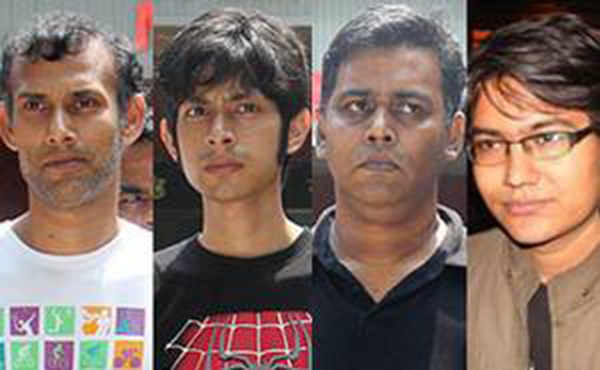The Bangladesh Government must repeal or amend the newly amended Information and Communication Technology (ICT) Act because it is being used to assault freedom of expression and freedom from arbitrary detention, the ICJ says.
The ICT Act, as amended on 6 October 2013, has been used to arbitrarily detain Nasiruddin Elan, Director of prominent human rights organization Odhikar, who was denied bail by the cyber crimes tribunal on 6 November 2013.
His appeal to the High Court division of the Supreme Court has been set for 24 November 2013.
Adilur Rahman Khan, Odhikar’s Secretary, has also been charged under the ICT Act.
The Government has accused the two of deliberately distorting the number of protestors killed in a police crackdown on the Islamist party, Hefazat-i-Islam, in May this year.
“The original ICT Act already served to undermine human rights, but the new amendments make the law nothing short of draconian”, said Sam Zarifi, ICJ’s Asia director. “The Government has used the newly amended Act to try to silence peaceful critics and civil society like Odhikar, in clear violation of international law.”
In a briefing paper issued today (see below), the ICJ analyzes the Information and Communication Technology (amendment) Act, 2013, and points out its serious deviations from international law, including: the amendments make many offences under the Act non-bailable; they allow the police to make arrests without a warrant; they impose a severe minimum prison sentence of seven years for offences under the Act; and they increase the maximum penalty for offences under the law from ten to 14 years’ imprisonment.
Provisions of the original ICT Act, particularly section 57, are also incompatible with Bangladesh’s obligations under Article 19 of the International Covenant on Civil and Political Rights (ICCPR), which Bangladesh ratified on 6 September 2000: the offences prescribed are vague and overbroad; the restrictions imposed on freedom of opinion and expression go beyond what is permissible under Article 19(3) of the ICCPR; and the restrictions are not necessary and proportional to achieve a legitimate purpose.
“The overbroad, vaguely defined offences combined with disproportionate penalties stifle public discourse, especially any criticism of the Government,” Zarifi added. “With elections coming up, it is crucial to defend the right to freely express opinions and exchange views—something the ICT Act seeks to restrict.”
Mahmudur Rahman, acting editor of a Bengali newspaper critical of the Government, has also been arbitrarily detained under the Act for publishing transcripts of a Skype conversation between former International Crimes Tribunal Chairman, Justice Muhammad Nizamul Huq, and a Bangladeshi legal expert, Ahmed Ziauddin.
The records revealed information casting doubt on the independence of the International Crimes Tribunal.
Four bloggers (photo), Asif Mohiuddin, Subrata Adhikari Shuvo, Moshiur Rahman Biplob and Rasel Parvez, are also facing trial under section 57 of the ICT Act for allegedly making derogatory comments about Islam and ‘hurting’ religious sentiment.
“The amended ICT Act reflects a further attack on the rule of law and respect for human rights in Bangladesh,” said Zarifi. “The Government must immediately take steps to either repeal the Act or to modify it in line with international law and standards.”
Contact:
Sam Zarifi, ICJ Asia-Pacific Regional Director, (Bangkok), t: +66 807819002; email: sam.zarifi(a)icj.org
Ben Schonveld, ICJ South Asia Director, (Kathmandu), t: +977 14432651; email: ben.schonveld(a)icj.org
Reema Omer, ICJ International Legal Advisor, (Lahore), t: +923214968434; email: reema.omer(a)icj.org
Bangladesh-ICT Brief -Advocacy-Analysis brief-2013 (full text in pdf)

